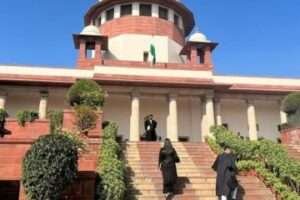Summary General Court Martial Can Try Cases Under POCSO Act, Must Protect Identity, Dignity & Psychology Of Victim Child
Case: Naik Bibhu Prasad v Union of India and others
Coram: Judge Rajnesh Oswa
Case No.: WP (C) No. 947/2022(O&M)
Court Observation: “There is no provision in the Act of 2012 that bars the jurisdiction of SGCM to try the offences under the Act of 2012. Rather section 42-A of Act of 2012 provides that the provisions of this Act shall be in addition to and not in derogation of provisions of any other law for the time being in force and in case of any inconsistency only, the provisions of this Act shall have overriding effect on the provisions of any such law to the extent of inconsistency.”
“Section 69 of the Act (supra) deals with civil offences and provides that any person, who is subject to Act (supra), who at any place in or beyond India commits civil offence, shall be deemed to be guilty of an offence against this Act and if charged with this section, shall be liable to be tried by a courtmartial. Exception to section 69 is provided by section 70 of the Act(supra), that provides that if a person subject to this Act commits murder of a person not subject to military, naval or air force law, or of culpable homicide not amounting to murder against such a person or of rape of such a person, he shall not be deemed to be guilty of an offence under this Act and shall not be tried by a court-martial unless he commits offences while on active service, or at any place outside India, or at a frontier post specified by the Central”
“The Special Courts have been created under the Act of 2012 with an avowed purpose of conducting speedy trial and to protect the dignity, psychology and honour of victim child. The Court of Sessions is a criminal court and once the offences under the Act of 2012 are triable by the Court of Sessions though designated as Special Court by the State Government in consultation with the Chief Justice of the High Court, the offences under the Act of 2012 would constitute a civil offence for the purpose of section 69 of the Act of 1950.”
“Once equally efficacious remedy is available to the petitioner by virtue of section 164 of the Army Act 1950, the petitioner is well within its right to avail said remedy. On this account also, the petition is not maintainable.”
Previous Posts
Testimony Of Disabled Witness Cannot Be Considered Week Or Inferior: SC Issues Guidelines To Make Criminal Justice System More Disabled-friendly Download Judgement
Balance Sheets Entries Can Amount To Acknowledgement Of Debt U/s 18 Limitation Act: Supreme Court
Keywords
Summary General Court Martial, POCSO Act, Victim Child




